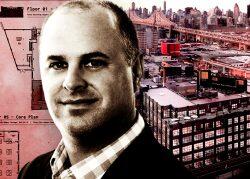New York City’s broader office market is still charting its path in the wake of the pandemic, but the life sciences sector enjoyed two straight boom years.
Tenants leased a record 455,000 square feet in the sector last year, according to CBRE data reported by Crain’s.
This was the second straight year that life sciences leasing topped out above 400,000 square feet in the city, a vote of confidence for the initiatives emphasized by top lawmakers in recent years, including Gov. Kathy Hochul. Leasing volume rose 5 percent from the 433,000 square feet reported in 2021.
Average rent in the sector also broke a record last year at $108.47 per square foot. Manhattan’s West End Labs played a big part in that, according to the report, after coming to market with very above-average asking rents.
The biggest lease of the year came at King Street Properties’ 45-18 Court Square West in Long Island City. NYU inked a deal to take 92,000 square feet at the property, known as Innolabs. NYU was also responsible for the second-largest lease of the year — its School of Medicine took 56,000 square feet at Deerfield Management’s 345 Park Avenue South.
The amount of life sciences space in the city surged year over year from 1.9 million square feet to 2.7 million square feet. Most of that space is in Manhattan, but the outer boroughs count 700,000 square feet. Longfellow Real Estate Partners’ property at 43-10 23rd Street in Long Island City, for example, delivered 200,000 square feet to the market last year.
Ready-to-use lab space remains limited for would-be tenants. The city has a 6.2 percent availability for such space, which drops down to only 2.9 percent for just Manhattan.
It isn’t all bloomy for the sector. Funding from venture capital and the National Institutes of Health both dropped last year, though the former was coming off a record year.
Despite the success of the last two years, there’s still a push for the city to improve its life sciences pipeline as it competes with San Francisco and Boston for biotech companies.
— Holden Walter-Warner
Read more



